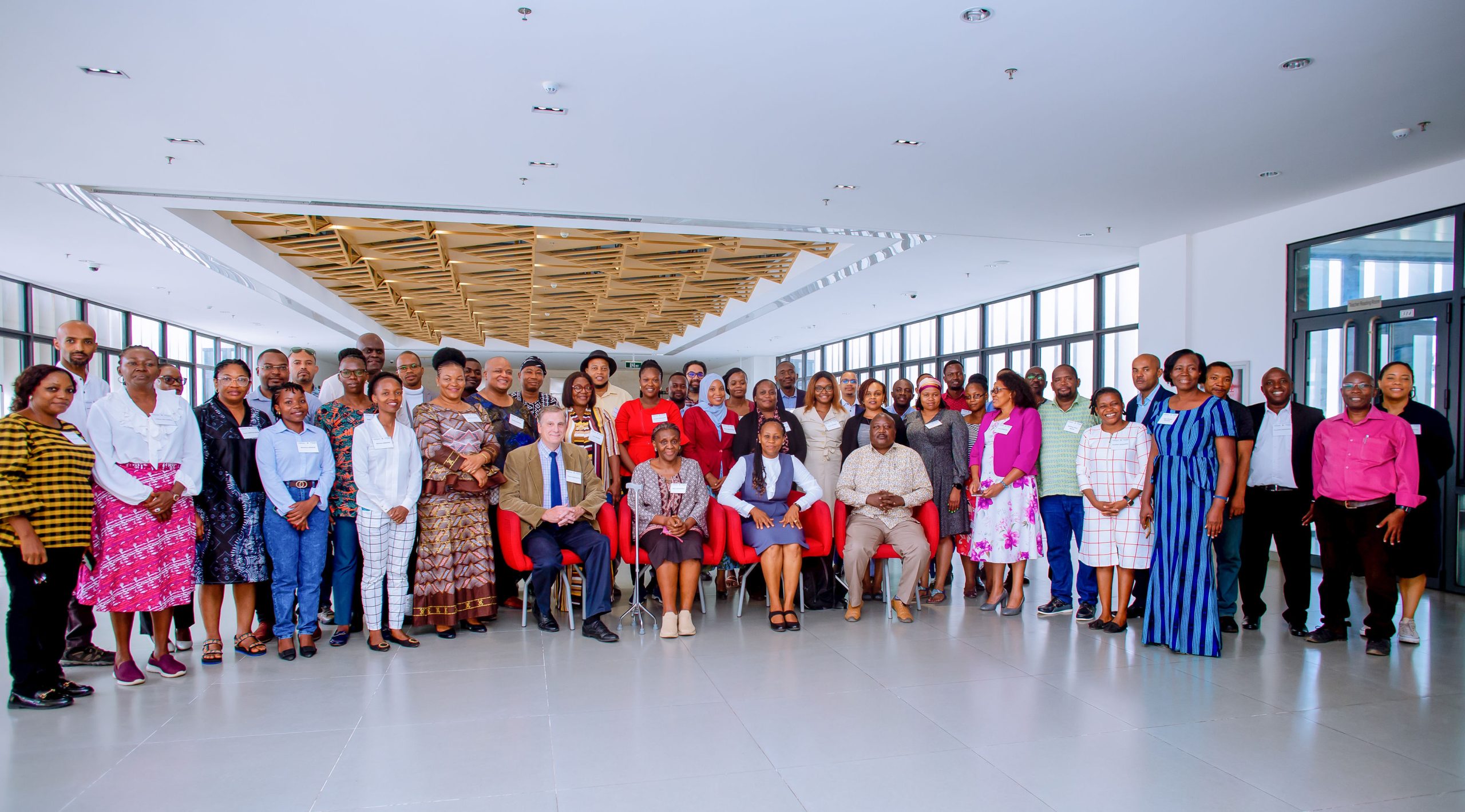By Dr. David O’Brochta, GeneConvene Global Collaborative, Foundation for the National Institutes of Health (FNIH)
The GeneConvene Global Collaborative, in partnership with the University of Dar es Salaam (UDSM), convened the third edition of Gene Editing: A Short-course for African Science Professionals this October. The course gathered fifty established science professionals from twelve African countries at UDSM’s New Library in Dar es Salaam. It took place over four days of intense instruction led by myself and Dr. Daniel Maeda, UDSM.
Many of today’s gene drive technologies rely on the use of programmable DNA endonucleases from CRISPR/Cas systems. Elements of CRISPR/Cas systems are the backbone of contemporary gene editing technologies. Contextualizing gene drive technologies as applications of gene editing technologies provides extended opportunities to inform stakeholders such as established science professionals who may not have proximal professional interests in gene drive, about these technologies. This is important, as these professionals will probably contribute to critical discussions about gene drive technologies as they develop and their potential applications garner more attention in Africa.
 Instructors and participants of the Gene Editing Short-course for African Science Professionals. Photograph: GeneConvene Global Collaborative.
Instructors and participants of the Gene Editing Short-course for African Science Professionals. Photograph: GeneConvene Global Collaborative.
The course was designed to provide participants with a robust, working understanding of past, present, and prospective gene editing technologies, and the basic biology and biochemistry upon which the technologies are based. It included short lectures, videos, formative assessments, and active learning sessions, as well as hands-on practical exercises using models and online tools for designing and analyzing specific prospective gene editing reagents. The objective of this in-person course was to empower participants – upon completion of the course – to confidently explain the technology to coworkers, deliver lectures to undergraduates, read and understand research reports in which the technologies are applied, and engage actively and knowledgably in discussions around the science and applications of gene editing technologies.
 Dr. Daniel Maeda presenting to participants of the Gene Editing Short-course for African Science Professionals. Photograph: GeneConvene Global Collaborative.
Dr. Daniel Maeda presenting to participants of the Gene Editing Short-course for African Science Professionals. Photograph: GeneConvene Global Collaborative.
The fourth day of the course consisted of a colloquium in which African scientists currently using gene editing technologies in their research programs described their work and engaged in discussions with the class. The colloquium included discussions on gene drive research and featured speakers from various institutions including the Ifakara Health Institute (IHI) – which the class had the opportunity to visit on the fifth day. The visit of IHI’s branch in Bagamoyo offered the class a glimpse of the institution’s laboratories involved in mosquito gene drive research and development efforts.
The demand for professional development and capacity building opportunities within the broad domain of gene editing in Africa is substantial, as evidenced by the overwhelming response of 900 applicants to “Gene Editing: A Short-course for African Science Professionals”. Courses such as this one not only train the trainers but also inform those who can guide and support future institutional decisions regarding science and technology.
Recent posts
